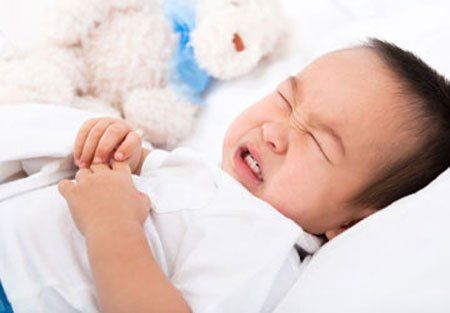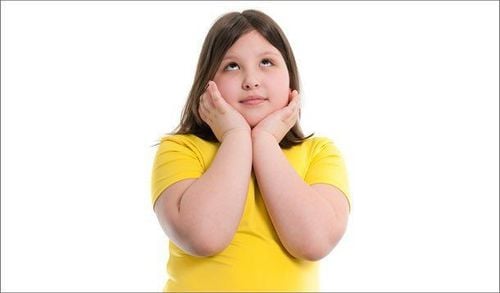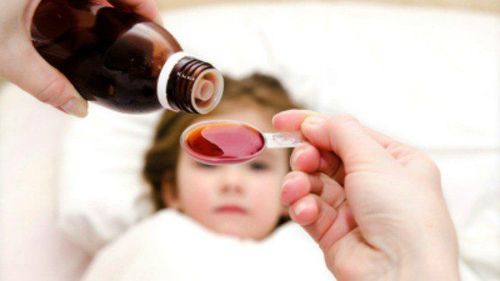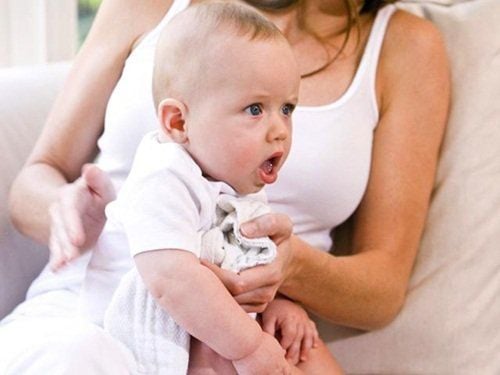This is an automatically translated article.
The article was professionally consulted by Specialist Doctor II Cao Thi Thanh - Pediatrician - Department of Pediatrics - Neonatology - Vinmec Hai Phong International General Hospital. Dr. Thanh has worked for 25 years in the treatment of neonatal pediatric diseases.Encephalitis is a very dangerous disease, especially encephalitis in children. The disease can cause serious complications later on or cause death if not treated promptly.
1. What is encephalitis?
Encephalitis is a condition in which a virus or bacteria attacks the brain directly, causing brain damage, affecting the entire functioning and thinking functions of the body.Encephalitis diseases are distinguished and have their own names according to their causes: Japanese encephalitis, enteric viral encephalitis...
2. Signs of encephalitis in young children
2.1. Signs of encephalitis in the early stages
At the onset of encephalitis, children have common signs such as:Fever for many days continuously, sometimes high fever up to 39 - 40 degrees Celsius Headache, stiff neck Child fatigue, slow limbs, vomiting eating, people have no energy Nausea or vomiting In addition, the child may have additional symptoms such as: diarrhea or constipation; cough, runny nose; red rash on palms, soles...

2.2. Signs of full-blown encephalitis
The full-blown stage is the stage when the disease has worsened, at this stage, the child has some more manifestations due to brain damage, affecting the body's motor and thinking regulation:Legs Difficulty moving hands, paralysis of limbs or hemiplegia Difficulty breathing Child lethargy, lethargic, comatose Child has hallucinations, cannot hear clearly Child has convulsions
2.3. Signs of Japanese Encephalitis
Japanese encephalitis is one of the most common and dangerous encephalitis diseases today, especially for young children. Signs of Japanese encephalitis in children are often more difficult to detect than in adults. In addition to the basic manifestations of encephalitis mentioned above, children under 12 months of age with Japanese encephalitis have signs of bulging fontanelles, crying uncontrollably, especially crying louder when being picked up.3. What to do when the child has signs of encephalitis?
Encephalitis in young children is very dangerous, the disease progresses very quickly, the virus or virus that causes disease attacks the brain and can cause damage to the central nervous system. If not detected and treated early, children may suffer from sequelae affecting detection, motor ability and thinking such as growth retardation, mental retardation, poor memory, deafness, and movement disorders. epilepsy, cerebral palsy, quadriplegia or hemiplegia... even death.Therefore, as soon as a child shows signs of encephalitis at the onset or has a high fever continuously with no known cause until the 3rd day, it is necessary to immediately take the child to a specialized, fully equipped hospital. a team of qualified medical staff to perform tests, diagnose diseases, take timely treatment measures, minimize the effects and dangerous complications of the disease.

4. Guidelines for taking care of children with encephalitis
4.1. Note when taking care of children with encephalitis
Give the child the right medicine and the right dose according to the doctor's instructions. Dress the child in loose, cool clothes and use a warm towel to wipe the child's body to lower body temperature. If the child has a high fever above 38.5 degrees Celsius, give the child fever-reducing medicine or consult a doctor. The child should be placed lying on his side, his head slightly tilted back for easier breathing. Children with runny nose, avoid stagnation of phlegm, making it difficult for children to breathe4.2. What should children with encephalitis eat?
Give your child plenty of water to drink. If the baby is still breastfed, increase the amount and frequency of feedings during the day. If the baby refuses to breastfeed, express milk and spoon feed the baby. Pay attention to feed slowly because children with encephalitis are easy to choke and spit. Give your child plenty of green vegetables, fruits, foods that are rich in minerals and vitamins. Feed children easily digestible foods, avoid bloating, indigestion, constipation. Feed children many meals a day to replenish energy, ensuring adequate supply of 50-60Kcal/kg/day.Please dial HOTLINE for more information or register for an appointment HERE. Download MyVinmec app to make appointments faster and to manage your bookings easily.














